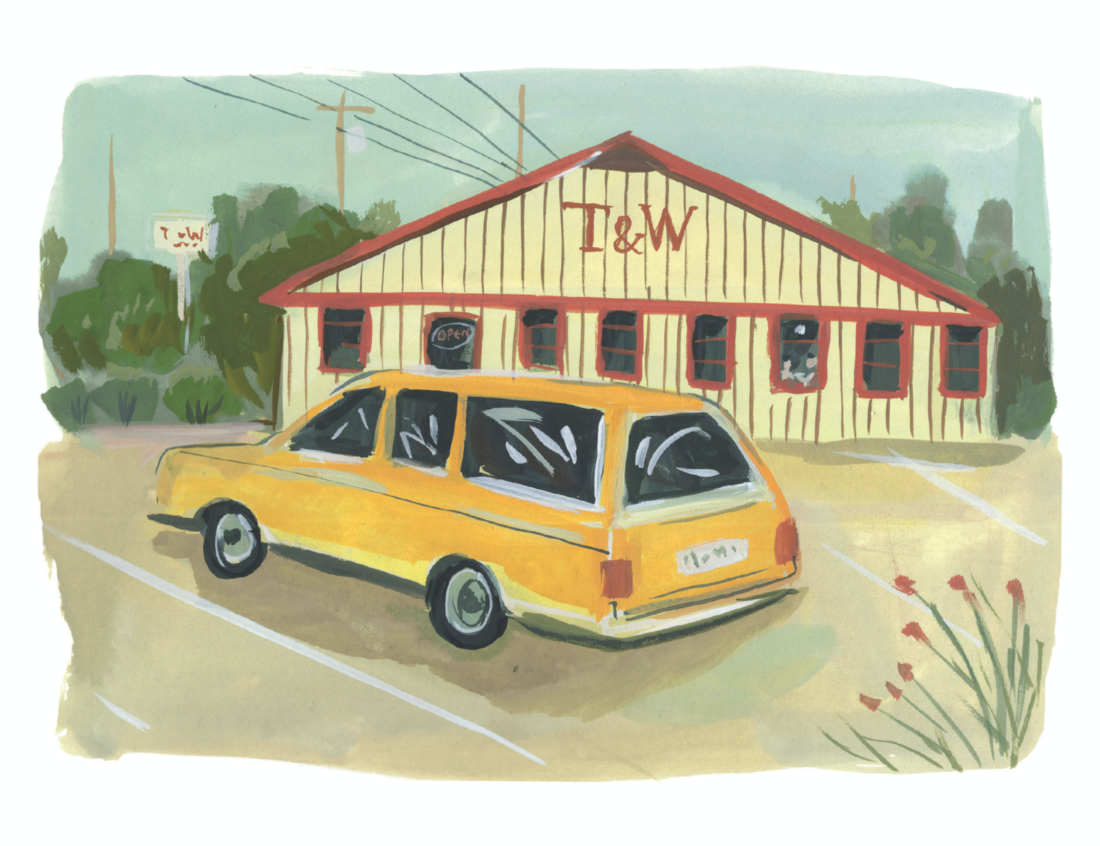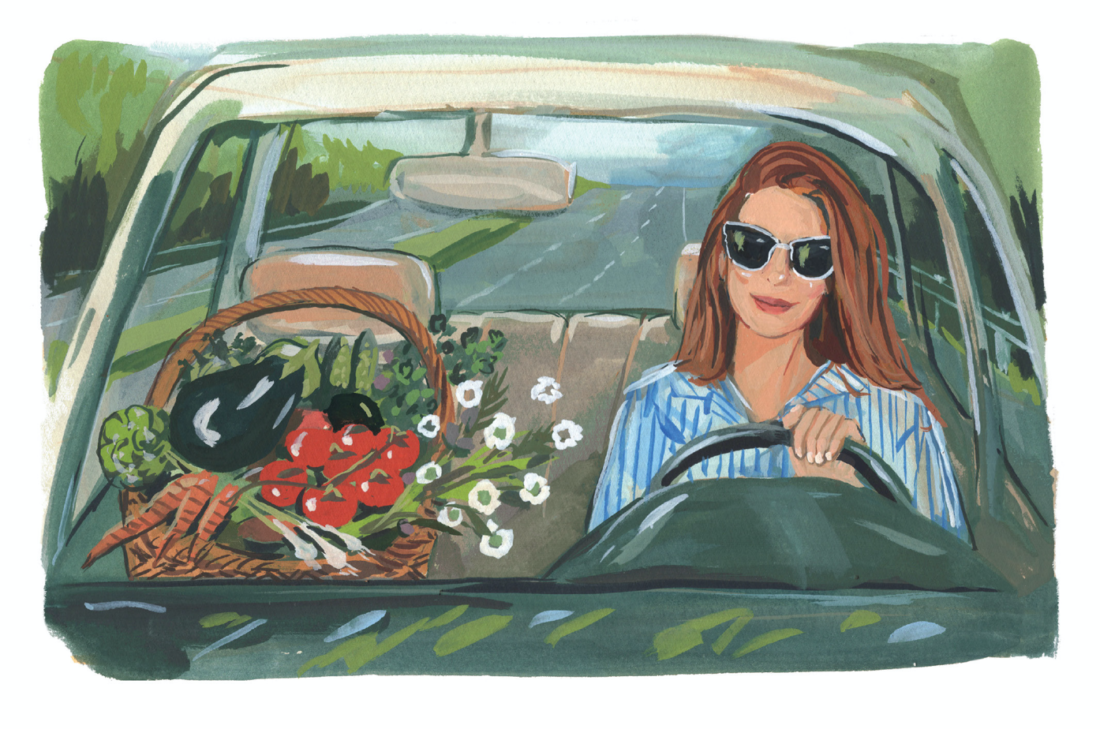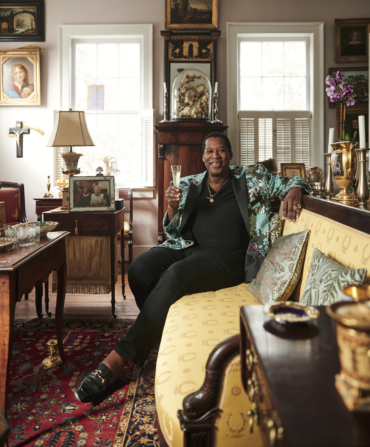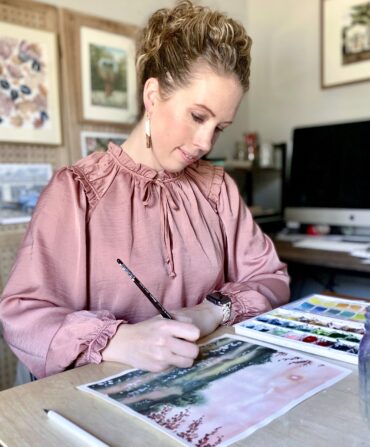Listen to Vivian Howard read this column:
Even before the PBS series A Chef’s Life, our restaurant in Kinston, North Carolina, had become a destination. Over the course of those first five years, word of mouth decreed Chef & the Farmer a “worth the drive” special-occasion spot serving hyper-regional Southern food in an unlikely, out-of-the-way, some-say-dying-others-say-dead town. Anybody attached to the experience we provided at Chef should have been patting themselves on the back a million miles a minute at such praise. But nothing made me feel more like a cat whose fur has been stroked the wrong way than when people greeted our restaurant’s host, one foot in the door, with “We drove allllll the way from Raleigh, more than an hour and a half in the car!” Or “Can you believe we left the beach to drive here? We must be crazy.” They didn’t say this, but you could see it on their faces: It better be worth it.
First of all, that people deemed driving a distance at full speed in the privacy of their own temperature-controlled car something worth noting was news to me. I love riding in the car, always have. I thought other people did, too. Desperate parents cram their screaming offspring into car seats and drive them around praying they fall asleep for a reason. Riding in the car is relaxing. Even babies know that.
Second, when you live in the country, getting where you need to go often takes as long as what you do once you get there, so people of the rural persuasion learn early on that driving time takes up a significant part of your day and should not be wasted. When I was a kid, a trip to anywhere other than church or to O’Dell’s store took at least thirty minutes each way, and since my parents led a music-free life other than hymns and Hee Haw, I had a mountain of quiet time to manage. I won Miss America, clogged in the Macy’s Thanksgiving Day Parade, and beat out Stacey Stanley for smartest kid in the grade, all while staring out the window of my mom’s yellow station wagon, tobacco fields and pine forests blurring before my daydreaming eyes. Furthermore, if you are accustomed to spending a half hour in the car to get to a legit grocery store, then you really get revved up for a ride when you’re going to dinner at a restaurant. My sweetest memories of my parents acting like a couple are from Friday nights on the road to places like the T&W Oyster Bar, the Cypress Inn, or the Baron and the Beef. Each of these drives took longer than dinner did, and I relished every minute.
There is not a person on the planet who loves driving more than John Howard. A strong statement, I’m aware, but everybody who knows my dad will back it up. One of the only times he spanked me with a belt was after I pontificated at church about how he only pretended to be a farmer, because from what I could tell, he never got out of his truck. A man who prefers the middle of the road when it’s available, Dad drove all week long in the name of work, and then on Sunday he did it for fun, zigzagging clear across the state between tractor, truck, and car dealerships with my mom and me. Why? To look.
When Dad bought a stripped-down Tahoe, he made the void where the stereo should have been into a makeshift filing cabinet. Next, he installed a trash can and a cooler with bottled waters in the back and started doing what looked like some type of accounting on the Tahoe’s ceiling just above his head. It was official: The road was his office. He drives to live and lives to drive.
As for me, I’ve very much created a world where I spend almost as much time in the car as my dad. I don’t drive for pleasure as he does (though I did recently buy a 1987 Ford F-150 to make runs to the dump a lot more fun); most of my time on the road is practical. Drives to school are sacred to me—if not always pleasant, given the nature of mornings and fifth graders. But it’s forty minutes a day I can count on being alone with my kids and whatever happens to be or not to be on our minds. I haven’t moved any of my files or furniture into my SUV yet, but the constant shuttling to and from my restaurants in Kinston and Charleston, South Carolina, has made it a certain type of office. At first, I used the time to take work calls, chat with friends, and generally try to be productive. Then I found myself canceling meetings, ignoring calls, and instead using the ride and the silence it provides to brainstorm, daydream, deep dive on deep thoughts, and—more often than I’d like to admit—cry. In between I’ve earned what must be a PhD in podcasts and worn a hole through Taylor Swift Essentials on Spotify. All of it kind of feels like meditating with my eyes open.

Oddly, it’s also Charleston that made me realize that guests’ remarks about the drive to Chef & the Farmer bothered me for no other reason than the country-sized chip on my shoulder. I was just used to having the opposite point of view. When we made the two-hour drive to go back-to-school shopping at Crabtree Valley Mall, or when we made the same trek to indulge in a celebratory dinner at the Angus Barn, I would have done everything in my power to make our server or salesperson think I lived inside Raleigh’s beltline. If the lady at Belk knew I lived on a farm two hours away, she might assume I couldn’t tell the difference between last year’s Esprit and this year’s Esprit. Or our server would think (mostly correctly) that we all wanted our steaks well done and our salads doused in Thousand Island.
So I mistook the fact that people were so quick to let us know how far they had traveled to eat at Chef & the Farmer as an insult, a means to set themselves apart, to make sure we knew how civilized they were. Now, in Charleston, people do the exact same thing. The first piece of information they need to get off their chests when they sit down for dinner at Lenoir is how far they’ve traveled to get there. That is, unless they’re from the peninsula. Those people make sure you know that, too. Now I understand it as the compliment it always was.








